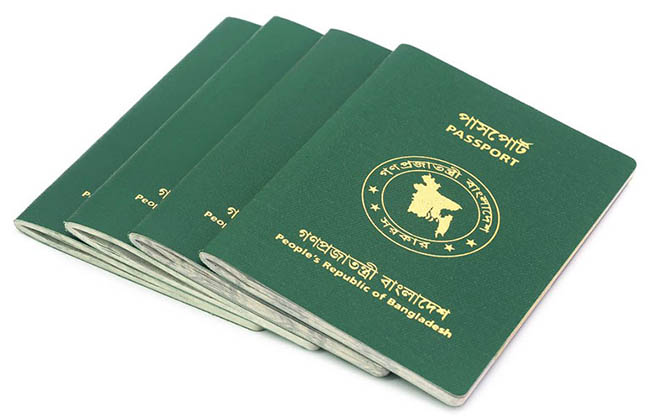
Although the goal of launching e-passport in Bangladesh was set by 2020, it was not possible due to the novel coronavirus. Meanwhile, no importance was given to updating the server of Machine Readable Passport (MRP). As a result, passport renewal activities in Bangladesh missions have come to a halt. Expatriate Bangladeshis are facing hardships in different countries of the world, including the Middle East, Singapore, Malaysia, as no new passport has been printed in the last four weeks. Due to lack of passports, they are not able to update the required documents, including work permit. The passport department knew in advance that the MRP server would run out of capacity by early June. However, having failed to realise the importance of the issue, they did not take any timely action. The expatriates are facing this misery due to their indifference. The matter needs investigation and the home ministry should take necessary action in no time.
This is not the first instance of such negligence by the passport department. In the past, about 75 lakh expatriates were in trouble for not getting MRPs. The government signed an agreement with a Malaysian corporation 11 years ago to provide technical assistance in developing the MRP. Taking information anew was automatically stopped according to the agreement when the MRP server’s limit of 30 million passports exceeded in early June. Passport renewal was stopped although the passport department claimed that the problem had already been resolved. Now, they say it has been decided to work with the company for another 60 lakh MRPs. In this situation, the question naturally arises as to why they did not take the initiative earlier if it is possible to increase the capacity of the server in such a short period of time.
Bangladesh has 80 missions in 60 countries. Migrant workers in various countries, including the Middle East, have been in an anxious state of being arrested by the police. Many of them have not been able to submit applications for renewal of work permits due to not getting passports in time. As a result, the fear of losing their jobs and going to jail is increasing among them. In this situation, Bangladesh missions can issue special audit passes and travel permits to expatriates. It is necessary to see that the expatriate workers are not subjected to any kind of harassment. If the expatriates cannot work due to lack of passports or are forced to return to the country, the economy will shrink and the flow of remittances will dip.
It is understandable that working properly amid the Covid-19 situation is difficult. It took 8-10 weeks to renew the passport in the United States as the coronavirus outbreak worsened. But expatriate workers from India, the Philippines, Thailand and other countries did not fall into such a situation. According to a 2016 survey by TIB, passport offices of Bangladesh were the most corrupt. Expatriates have been complaining over the passport service for years. The same allegations are made everywhere, including Saudi Arabia, the United Arab Emirates, Qatar, Oman, Malaysia, and the Maldives. The income of expatriate workers is one of the driving forces of the country’s economy. Why does an expatriate have to visit the embassy day after day to get a passport and why will they face various problems year after year? It is important to find a permanent solution to this problem.


